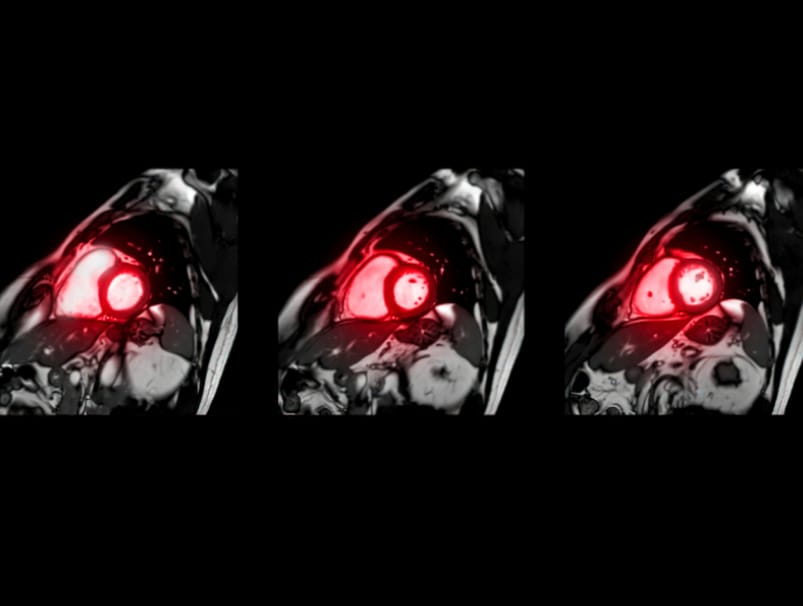You may be referred, after a consultation with one of our Cardiologists for a Cardiac MRI
Cardiac MRI is a specialised heart test only available in a few centres throughout Sydney. We ensure that all scans are performed using the latest technology.
Cardiac MRI is a medical imaging technique used to visualise detailed internal structures of the heart and blood vessels. It is a well-established and powerful diagnostic test for the assessment of a range of heart and vascular diseases. Assessments made using cardiac MRI do not require any harmful radiation. This form of imaging is very safe for most patients. It is a highly accurate and non-invasive technique that provides assessment of both heart tissue structure and function by using the natural signal from small particles (nuclei of atoms) inside the body. The MRI scanners act as large magnets and the heart images come from signals given out by small parts of the cells (the Hydrogen atoms in water and fat) within the heart.
Why is it done?
Cardiac MRI enables clear pictures of the heart to be taken in three dimensions and may be used to diagnose many life threatening heart conditions that are not visible by other imaging modalities. Cardiac MRI may be used to detect scar tissue, inflammation and infection of the heart and it is a key test to determine the cause of heart failure, cardiomyopathy and arrhythmias. Cardiac MRI is routinely performed for any proven or suspected congenital heart disease, anomalous coronary arteries, aortic disease and ischemic heart disease and many other conditions.
List of conditions where Cardiac MRI is useful
- Ischemic Heart Disease (Heart attacks).
- Cardiomyopathy and Heart Failure.
- Arrhythmia
- Atrial fibrillation ablation planning
- Hypertension
- Hypertrophic cardiomyopathy
- Athlete’s heart
- Amyloidosis
- Thalasemia and blood transfusions
- Valvular heart disease
Preparation
There’s no preparation required.
Take your usual medications as normal unless instructed otherwise.
You can eat and drink normally in the days leading up to the test.
Just before your MRI begins, you’ll need to remove all jewellery and any metal objects. You will be asked to put on a hospital gown.
During the cardiac MRI scan, the patient usually lies on their back on a table which slides into the scanner open at both ends, like a large donut. The radiographer and patient can speak to each other during the scan. On average, the scan can take about 40 minutes to complete. Often an intravenous dye is injected into an arm vein during the scan to help highlight various regions of the heart. Images that are taken can assess for birth defects, heart muscle diseases and to help investigate the causes of symptoms which may come from the heart, such as collapses and chest pain.
Results
A report usually takes 3-4 days to finalise and it will be sent to your referring Doctor. You can arrange a follow up appointment with your Doctor to discuss your results and recommend an appropriate treatment plan to help you manage your symptoms moving forward.
Have Questions?
Make an Appointment to get all your cardiology questions answered by our experienced team
Quick and Easy Consultation & Referral Process

